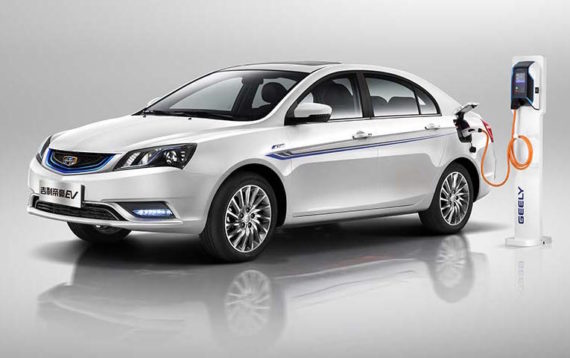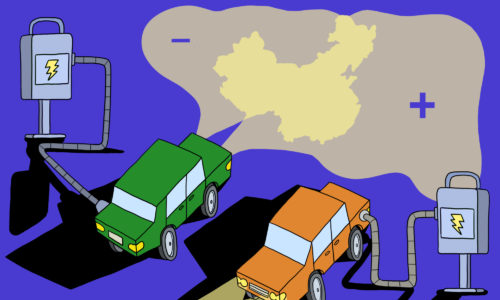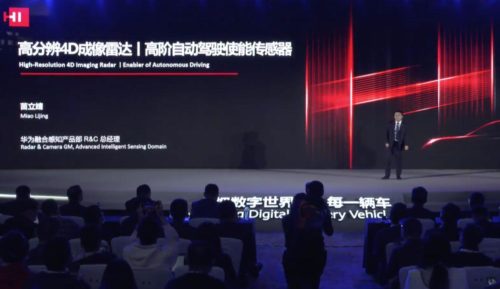Electric vehicles now 1.2 percent of car market in China – China’s latest business and technology news
A summary of the top news in Chinese business and technology for May 26, 2017. Part of the daily The China Project news roundup "A grisly murder by a literary police chief."

There is news every day in China on the disruptions caused by — and the difficulties of implementing — technologies such as clean energy and smartphone-enabled bike-sharing services. Here are four from this week:
- Clean Technica reports that China “had more than 32,000 new electric cars zooming the streets last month, a 49% increase over the same month last year.” Electric vehicles made up 1.2 percent of all cars sold in April. The five top-selling models were from BAIC, Zhidou, Kandi, Geely, and BYD.
- Germany’s Volkswagen and Anhui Jianghuai Automobile Group (JAC Motor) have received approval from regulators to form a joint venture to “build 100,000 pure battery electric vehicles annually,” according to Reuters.
- CGTN reports on efforts to turn Beijing’s taxi fleet electric, with a video featuring a disgruntled driver saying “No way!” when asked if he wanted to continue driving an electric vehicle after trying it for three months. Many drivers like him find the charging stations too sparse and charging too time-consuming, but that may soon change: China’s goal is to have 5 million charging stations installed in the country by 2020, and 80 million by 2030. Furthermore, some stations are already experimenting with new methods for changing electric taxi batteries, such as swapping out depleted ones for freshly charged battery units in a mere five minutes, rather than charging at the site, which takes at least 90 minutes.
- Despite the renewed enthusiasm for cycling in Chinese cities caused by the booming bike-share business, Bloomberg reports on the woes of China’s large bicycle producers. Many of the established bike manufacturers were “latecomers” to the booming bike rental market, as they are “more cautious than small, private makers and take a much longer time to make decisions.” The bikes preferred by rental companies are cheap, meaning small revenue and little profit for manufacturers, but some companies now hope that the renewed enthusiasm for biking will lead to more sales of high-end vehicles in the longer term.
- China’s reforms not enough to arrest mounting debt: Moody’s / Reuters
- Irritation with Moody’s reflects China’s sensitivity as it seeks foreign investors / Reuters
- China’s hand-of-state tightens grip on market with yuan move / Bloomberg
- ‘Plant factories’ churn out clean food in China’s dirty cities / Bloomberg
- Forget New York or San Francisco, Chinese investors are looking at balmy, and cheaper, Miami / CNBC




